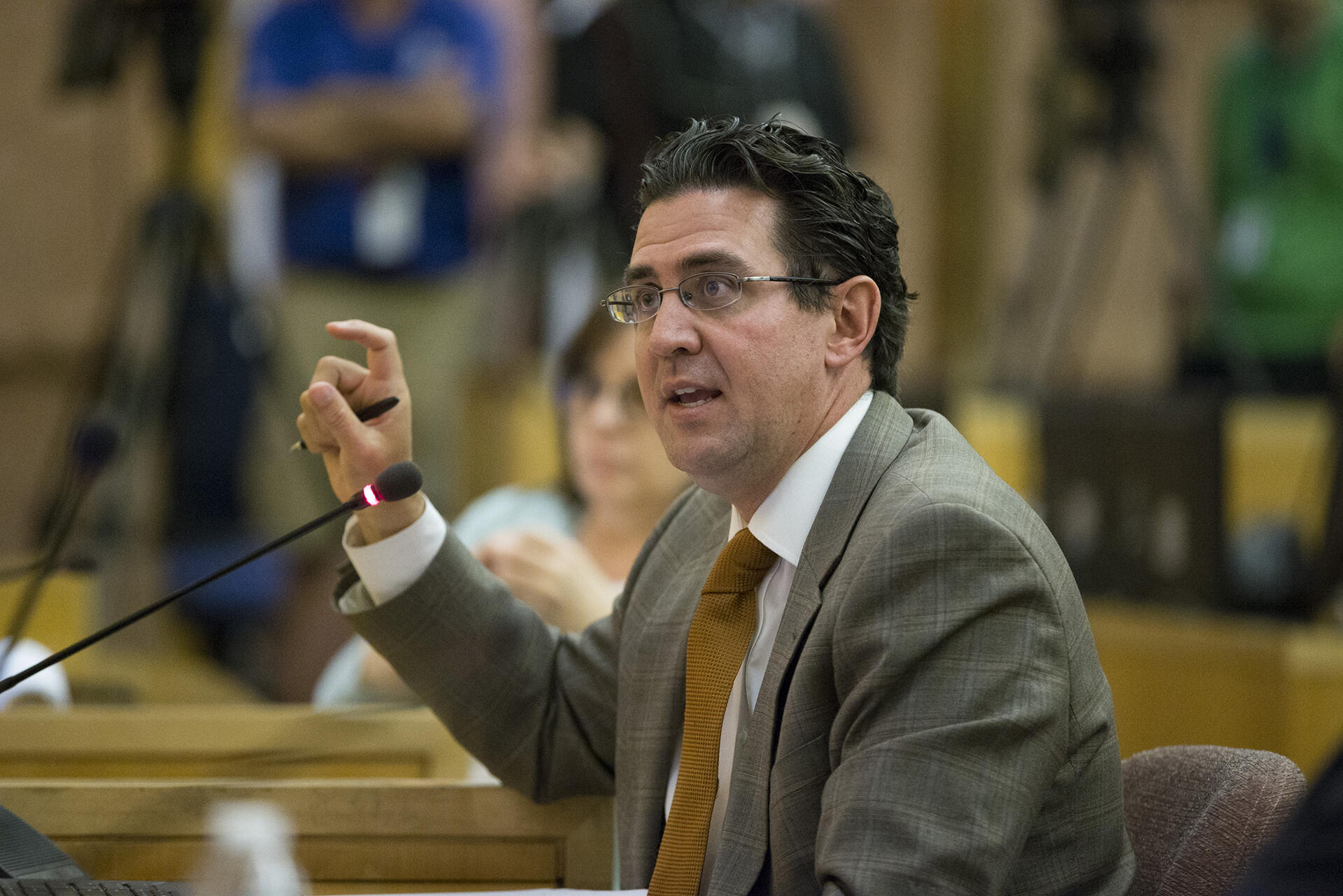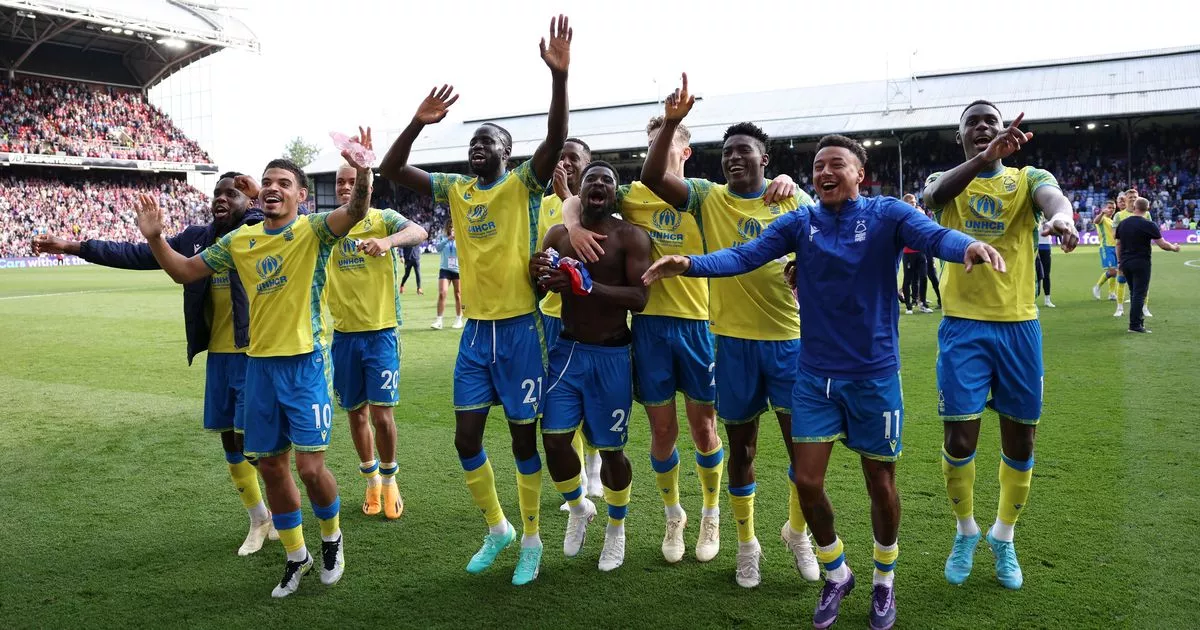The Negotiator: Jeremy Arndt's Impact On BVG Talks

Table of Contents
Arndt's Negotiation Strategy and Tactics in the BVG Talks
Jeremy Arndt’s approach to the BVG negotiations was a masterful blend of collaborative and confrontational strategies. He understood the need for firm negotiation tactics while simultaneously fostering an environment conducive to compromise. This nuanced approach was crucial in bridging the significant gap between the BVG management and the labor unions.
- Mediation and Facilitation: Arndt skillfully facilitated communication between opposing parties, often acting as a mediator to address misunderstandings and facilitate open dialogue. He created a safe space for both sides to express their concerns without fear of reprisal.
- Strategic Concessions: Arndt understood the importance of strategic concessions. He identified areas where compromises could be made without jeopardizing the core interests of either party. This demonstrated a willingness to collaborate towards a mutually beneficial outcome.
- Data-Driven Approach: Instead of relying solely on emotional arguments, Arndt utilized data to support his points and demonstrate the financial implications of different proposals. This objective approach built trust and helped ensure rational decision-making.
- Focus on Shared Goals: Arndt emphasized the shared goal of ensuring a reliable and efficient public transport system for Berliners. This framing of the negotiation helped move the focus away from adversarial positions towards a common purpose.
Key Achievements and Outcomes Attributed to Arndt's Involvement
Arndt’s involvement in the BVG talks resulted in several significant achievements. His successful negotiation skills averted what could have been a crippling strike, saving the city millions in potential economic losses.
- Averted Strike Action: The successful conclusion of the negotiations prevented a lengthy and disruptive strike, ensuring the continued operation of Berlin's vital public transport network.
- Improved Working Conditions: The final agreement included improvements in working conditions for BVG employees, addressing issues such as work-life balance and job security. Specific improvements included increased holiday time and a revised overtime policy.
- Enhanced Labor Relations: Arndt's approach fostered a more positive and collaborative relationship between the BVG management and its workforce. This improved labor relations climate has had a sustained, positive impact on the workplace environment.
- Positive Media Recognition: His success in resolving the BVG dispute garnered significant positive media coverage, highlighting his skills as a negotiator and problem-solver. This positive publicity boosted public trust in the BVG and the effectiveness of negotiation in conflict resolution.
Challenges and Obstacles Faced During the BVG Negotiations (and Arndt's Response)
The BVG negotiations were not without their challenges. Several significant obstacles threatened to derail the process.
- Deep-Seated Mistrust: Initial meetings were characterized by a deep-seated mistrust between the BVG management and the labor unions, stemming from previous disputes.
- Conflicting Demands: The unions presented a wide range of demands, some of which were incompatible with the BVG's financial constraints.
- Public Pressure: The negotiations took place under intense public scrutiny, adding another layer of complexity to the process.
Arndt's response to these challenges was characterized by patience, persistence, and a willingness to explore creative solutions. His ability to actively listen to all perspectives, build trust, and find common ground proved invaluable in overcoming these obstacles. He effectively managed conflicting demands by prioritizing and categorizing them according to urgency and feasibility.
Arndt's Legacy and Long-Term Impact on BVG and Labor Relations
The long-term impact of Jeremy Arndt's involvement in the BVG talks extends far beyond the immediate agreement reached.
- Sustainable Solutions: The agreements reached were carefully crafted to be sustainable in the long term, addressing underlying issues and preventing future disputes.
- Improved Communication: The improved communication channels established during the negotiations continue to contribute to a more positive and collaborative working relationship between BVG and its employees.
- Model for Future Negotiations: Arndt's successful negotiation style has become a model for future labor negotiations within the public transport sector, showing the effectiveness of a balanced approach. His methods are now studied by other negotiators in similar fields.
Conclusion: The Enduring Influence of Jeremy Arndt's Negotiation Skills
Jeremy Arndt's contributions to the BVG talks were undeniably significant. His skill as a negotiator, his ability to bridge divides, and his commitment to finding sustainable solutions averted a potentially disastrous strike and fostered improved labor relations. His legacy extends beyond the immediate success of these negotiations; his methods serve as a model for future conflict resolution, highlighting the critical importance of skilled negotiators in resolving complex labor disputes like those seen in the BVG negotiations. To learn more about effective negotiation techniques and labor negotiation strategies, and how to emulate the success of Jeremy Arndt, explore resources on [link to relevant resource 1] and [link to relevant resource 2]. The impact of skilled negotiators like Jeremy Arndt is undeniable in fostering a more collaborative and productive environment, ensuring the smooth operation of essential services like the BVG.

Featured Posts
-
 Andor Season 2 Your Essential Guide Before The Premiere
May 16, 2025
Andor Season 2 Your Essential Guide Before The Premiere
May 16, 2025 -
 Zuckerberg In The Age Of Trump Challenges And Opportunities For Facebook
May 16, 2025
Zuckerberg In The Age Of Trump Challenges And Opportunities For Facebook
May 16, 2025 -
 Boston Celtics Injury News Starting Guard Ruled Out Game 3 Implications
May 16, 2025
Boston Celtics Injury News Starting Guard Ruled Out Game 3 Implications
May 16, 2025 -
 Max Muncys Torpedo Bat Experiment 3 At Bats 1 Game Tying Double
May 16, 2025
Max Muncys Torpedo Bat Experiment 3 At Bats 1 Game Tying Double
May 16, 2025 -
 Crystal Palace Vs Nottingham Forest Sigue El Partido En Directo
May 16, 2025
Crystal Palace Vs Nottingham Forest Sigue El Partido En Directo
May 16, 2025
